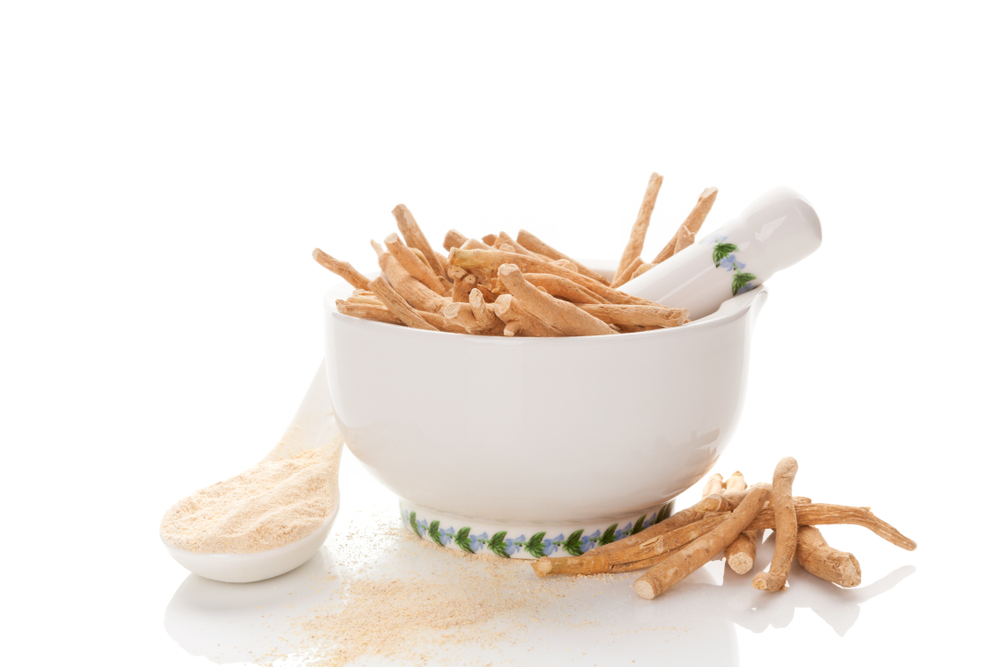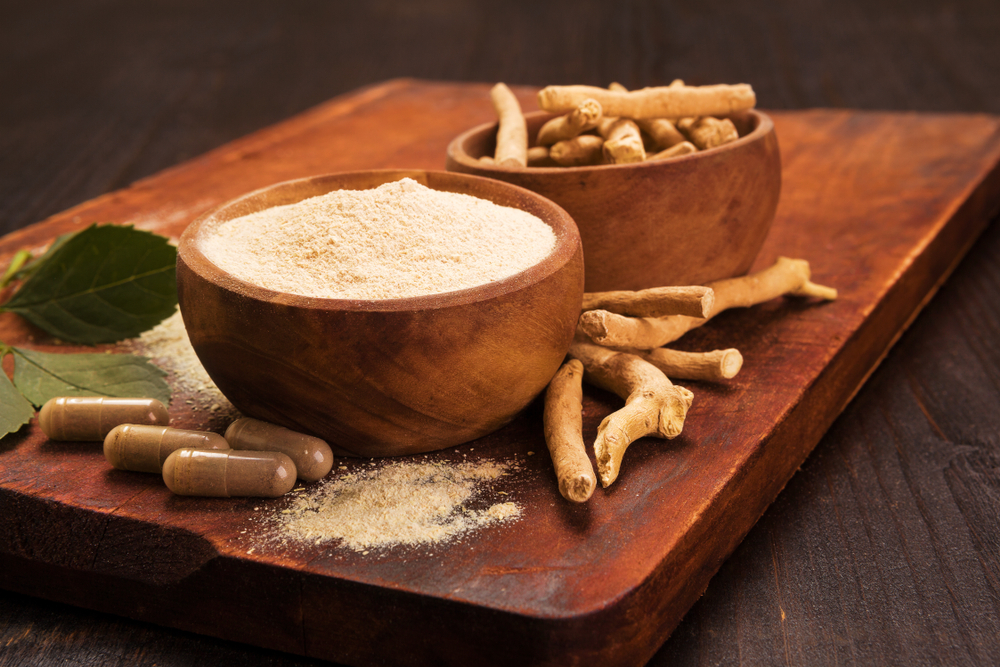Don’t worry, if you aren’t sure what ashwagandha root is you’re not alone, pronounced ash-wa-gan-dha, this deeply rooted botanical plant was first used in India as a rejuvenate and is now commonly used in western medicine for its ability to reduce stress and promote a more positive state of mind. Throughout this article we will dive deep into the benefits of ashwagandha root, its history and if it’s right for you.

History of Ashwagandha

The name Ashwagandha translated into English loosely means horse smell, not great from a marketing perspective but the effects it can have on the body make up for it. Originally native to areas such as India, North Africa and the Middle East, Ashwagandha root was first used in ayurvedic medicine thousands of years before it reached the western world. Visually it is a smaller plant with short stems along a number of leaves and bell flowers, containing an orange fruit that looks similar to tomatoes.
Also known as Indian ginseng or Indian winter cherry, ashwagandha was traditionally used to help support vitality and a healthy libido, once ground up this herb smells strongly of horse which many believed it could give you the strength of one. Ayurveda which is an alternative medicine system that has been rooted in Indian culture for over 5000 years has used ashwagandha to promote things such as longevity, happiness and strong vitality. Those from the Indian subcontinent who used ashwagandha commonly used it for the vata constitution which focuses on both the air and space around us. They believed that when your vata is well balanced that the energy can help support healthy skin, strong joints, a healthy body weight, a focused mind and a healthy nervous system. Many who practice ayurvedic medicine used it to help manage what we would call the daily grind, helping manage stress, anxiety, exhaustion and lack of sleep. Packed with antioxidants, iron and amino acids this herb was considered one of the most powerful forms of medicine in the ayurvedic culture.
Health Benefits of Ashwagandha

Now that you understand the rooted…. history of ashwagandha let’s dive into the many health benefits ashwagandha root has to offer and how it can help you live a more healthy and fulfilling life.
Lower Stress Levels
Stress and anxiety have become a global pandemic, with millions of Americans being treated for stress, it’s more vital than ever to care for your mental health. When you don’t take care of your mental health it’s common for things like anxiety, depression, ulcers, weakened immune systems and so much more to take place. Plants like ashwagandha can help contribute to reducing stress levels and anxiety in a holistic natural way.
One major upside to taking ashwagandha root powder is that it can contribute to reducing our cortisol levels. Cortisol is a stress hormone that directly affects the psychological effects of stress. When our body goes through a stressful period it fluctuates our cortisol levels which in turn causes abnormal effects on our blood glucose regulations, hormones, digestion, sleep and other areas of the body that help us reduce stress. When the body absorbs certain amounts of ashwagandha root powder it can possibly influence healthier levels of cortisol and possibly reduce the inflammation process which are associated with our response to stress. Ashwaganda root powder can also help in the support of the health of our adrenal gland by specifically boosting like energy levels and reducing the feeling of fatigue. Ashwagandah root powder has the ability to mimic the calming activities of the neurotransmitter gamma-aminobutyric acid (GABA), targeting our neurons to withdraw anxiety from our body, boost sleep cycles and help overall mood.
Immune System
When our energy levels are high and our body is better able to manage our stress levels it means our bodies are significantly healthier and strong when it comes to fighting off illnesses. Ashwagandha not only helps manage stress levels but it also helps stimulate our immune system cells. It has been shown that when we consume ashwagandha it helps benefits our white blood cells, increasing the cell count while also helping our hemoglobin concentration and red blood cells. This means that ashwagandha can possibly boost the immune system to help it battle against infectious agents. Ashwagandha also is rich in antioxidant which helps reduce anti-inflammatory effects which when sick or stressed can flare up and affect the immune system activity.
Cognitive Function
As we get older our ability to remain cognitively sound is vitally important, with diseases such as Alzhemiers and Dementia increasing in Americans we need to maintain our brain health. There is no cure for such diseases but symptoms can be minimized to make things easier for those suffering from these diseases. In various studies it has shown that ashwagandha can potentially improve focus, increase the feeling of calm, improve short term memory issues and overall brain function. Research is limited but The Alzhemier’s Drug Discovery Foundation has noted that the use of ashwagandha can help improve brain function, research is limited but showing positive signs.
Nervous System
Our nervous system impacts so many areas of our body, from the skin to our organs all the way to our brain, the vitality of our nervous system to living a healthy life cannot be underestimated. Ashwagandha is known as a neuro supportive and nootropic herb which helps boost cognitive functions, Ashwagandha has also shown it can help with strengthening the foundation of the nervous system. This is done by helping support a healthy nervous system through antioxidant support and supporting pathways in our brains for the Gamma-aminobutyric acid (GABA) which is used for producing calming effects. As we’ve mentioned before ashwagandha also helps with increasing positive moods and regulating cortisol levels, helping balance out adrenal fatigue.
Heart Health
As we’ve mentioned before, ashwagandha offers antioxidant support and this is especially true for the heart, specifically ashwagandha can help against free radicals in the blood. Ashwasandha also has the potential to provide anti-inflammatory benefits making it easier for the heart to function at an optimal level. It also helps support healthy cholesterol and triglyceride which is a factor when it comes to things like stroke, heart attacks and cardiovascular issues.
How To Take Ashwagandha & Get the Proper Dosage

Ashwagandha now commonly comes in capsules and pills located in most health stores and it can also come in a powder which can be mixed with beverages. So what is ashwagandha root powder? It’s quite simple actually, it is simply aswagandha root crushed down into a powder form for easier consumption. Wondering how to use ashwagandha root powder? You can add it to any liquid, traditionally being mixed with honey or ghee while added to any beverage such as tea or water.
When it comes to getting the right dose the variation can vary between 250 mg – 5 grams. When you take 250 mg of ashwagandha on a daily basis it has shown to help reduce anxiety levels and serum cortisol levels. When looking to buy ashwagandha many products will come in a range of 150 mg and upwards, there tends to be lower levels found in supplements that mix ashwagandha with other supplements. You can find higher doses of ashwagandha in supplements that are specific to ashwagandha, with most recommending around 2-3 capsules per day to get the appropriate amount. As you begin to take ashwagandha it’s best to start low to understand tolerance levels, when you do take multiple capsules you can take all at once opposed to throughout the day. It is recommended to start with one capsule and go on from there. Also you should give the supplements a course of 30 days to properly start to work for best results.
Side Effects
There are very low chances of side effects happening when taking ashwagandha. However everyone should speak to their doctor before taking ashwagandha.There are individuals who may react to ashwagandha differently, especially if they are taking medication for high blood pressure, thyroid and blood sugar. Also those who are pregnant and breastfeeding along with those who have autoimmune disease should speak with their dsoctor before taking ashwagandha.
FAQ’s
What is ashwagandha root powder good for?
It can help reduce anxiety, stress, fight depression and brain function.
Is it safe to take ashwagandha daily?
250 mg – 500 mg per day is the daily recommend total to take.
What are the side effects of ashwagandha?
Side effects are not common with ashwagandha.
Who should not take ashwagandha?
Those who are pregnant and breastfeeding along with those who have autoimmune disease should speak with their doctor before taking ashwagandha.
How much ashwagandha powder should I take daily?
There is no standard amount. Anywhere between 1 – 6 grams.
Can ashwagandha cause weight gain?
Ashwagandha can help build muscle mass, possibly causing weight gain.
Can ashwagandha cause weight loss?
There are no signs that ashwagandha can help with weight loss.










